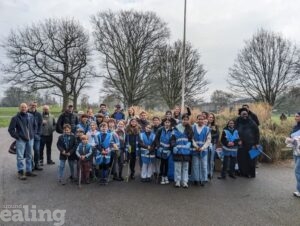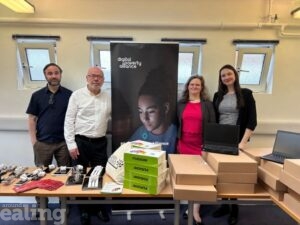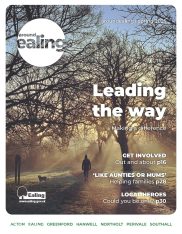This year, Ealing Council’s education team has been supporting schools across the borough introduce a revolutionary method of problem solving and trying new techniques in classrooms called ‘spirals of enquiry’.
Greenwood Primary School in Northolt decided to give it a try and consider how it could have an impact on the children across the school most at risk of not meeting their targets in English.
The school recently adopted a new approach to feedback in English lessons, ditching the green pen used for marking. Instead, the teacher leads whole-class feedback discussing and challenging any misconceptions or misunderstandings together in the moment.
Although it reduced the teacher’s workload (no longer having to mark a huge pile of books after school), they started the ‘spirals of enquiry’ and asked: was it working for all the children? And, in a busy school, how could staff use the latest research to support those children who are struggling in English lessons?
The process started with every member of staff, from teaching assistants to the headteacher, interviewing 3-6 pupils to hear what they had to say. In total, 20% of the school’s children took part.
‘It was really empowering’
“One of the best parts of this process for me was hearing that when they were asked, every single child could identify a member of staff that they felt believed in them. That’s incredibly important,” said headteacher Karen Silvester.
Looking at the results, groups of staff identified that although the new approach to feedback was working it shouldn’t be one-size-fits-all; they needed to adapt to different age groups or abilities.
“With this in mind, we decided to try applying some research,” added assistant headteacher Rob Butler. “It was really empowering because we were, literally, all learning together: children and staff at all levels of the school.”
The results?
It has changed what English lessons look like in classrooms, with pupils supported in a tailored way but also working as a whole class to better understand how to improve their written work. However, this process has also had a big and noticeable impact on the children’s motivation and confidence.
Karen explained: “We made important discoveries, like some of the resources that are specifically
designed for learners who struggle the most were actually holding them back. And, by removing these structures and being more flexible in our teaching, these children now have far higher expectations and belief in themselves.”







